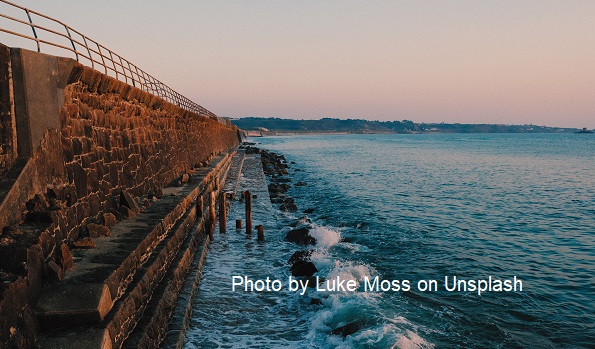Crossings resumed as weather conditions improved on the Channel, while disagreements over funding for coastline patrols continue, despite France intercepting and returning more than 16,000 people in 2021. Activists in Calais denounce police raids of makeshift camps via a hunger strike. An independent government report says people arriving in Britain via the Channel are hosted in unsuitable facilities, while asylum seeker suicides and revelations of millions misspent on removal facilities have further tarnished the UK’s management of asylum seekers.
After ten days in which poor weather conditions made crossings impossible, 624 people reached Britain in small boats on 8 October, and 491 did so on 9 October. The resumption of arrivals came against a backdrop of activity by French authorities to interdict Channel crossers: 414 people were prevented over the weekend of 8-9 October, and a further 348 were returned on 10 October. These people, who disembarked in Calais and Boulogne-sur-Mer, are amongst more than 16,000 people returned to France so far in 2021. However, the UK-France row over the management of Channel borders has continued, with the French interior minister saying “no one euro has been paid” of the 54 million GBP promised by the UK. The money formed part of a July agreement under which France would double the number of police patrols along the coastline. In response, the UK security and borders minister, Damien Hinds, said the money would begin to be paid out in “the coming weeks”. In addition to pushing France to prevent departures, the British response to Channel arrivals has included planning illegal “turn-backs” at sea. Legal experts this week highlighted an under-examined clause of the Nationality and Borders Bill that will make officials immune from litigation if a refugee dies during a pushback operation at sea. The Bill – currently under parliamentary scrutiny – attempts to overhaul the UK asylum system by ruling the asylum claims of “Channel migrants” inadmissible (and even punishable by a sentence of up to four years) and barring them from welfare and family reunification.
In the wake of a Human Rights Watch report claiming French police “inflict misery” on people on the move in makeshift camps around Calais, three local volunteers have launched a hunger strike in solidarity with people on the move. Expulsions, confiscations of belongings, and the destruction of tents have formed part of France’s “policy of dissuasion” which activists say amounts to “daily harassment and humiliation”. The strikers are demanding the suspension of evictions during the winter, the cessation of confiscations, and the opening of a citizens’ dialogue on distribution of aid to people sleeping rough. On 8 October, more than 200 people, most of whom are refugees, marched through Calais to protest living conditions and the recent death of a young migrant killed by a lorry.
A UK government watchdog has issued a report highlighting shortfalls in the reception of asylum seekers arriving via the Channel. The Independent Monitoring Board said a facility used in Dover was “unsuitable” – due to a lack of sufficient food, running water and washing facilities – and had endangered the welfare of children accommodated there. There were instances of people transferred to other facilities before serious health issues of injuries had been identified. Beyond the Dover centres, refugee rights advocates across the UK have said that “hostile environment” policies lead to dire mental health situations for the more than 125,000 people currently awaiting an asylum decision or return procedure. At least 11 teenagers that arrived in the country unaccompanied as asylum-seeking children have died by suicide since 2016, according to the Da’aro Youth Project. In 2020 alone, 29 asylum seekers died in Home Office accommodation. The government is yet to respond to an appeal from 47 organisations for an inquiry into deaths by suicide amongst young unaccompanied asylum-seekers and refugees.
The UK Home Office spent more than 3.175 million GBP on the construction of a removal centre only to scrap the plan two months later, freedom of information requests have revealed. The money was paid to a private construction firm to install temporary buildings with the intent of housing 187 asylum seekers on the grounds of the Yarl’s Wood camp in Bedfordshire. The plan was binned the day before the department was due to be taken to court by lawyers who argued that it had failed to obtain planning permission or carry out the necessary impact assessments before constructing the camp. The decision was welcomed by NGOs, who deemed the plan “completely inappropriate” and said residents would struggle to access legal and health services. “Shoving traumatised people into a de-facto prison camp in the shadow of the notorious Yarl’s Wood should never have been considered” said Tim Naor Hilton, head of ECRE member Refugee Action.
For further information:
- ECRE, UK: Calls to Let Asylum Seekers Work as High Court Says Work Ban Has “Adverse Impact” on Children, Offshoring Plans Run Aground, UK Urges France to Halt Channel Crossings, October 2021
- ECRE, Channel: Arrivals and Interceptions Rise as UK Advocates Illegal Measures to Stop Crossings, UNHCR Slams UK Asylum Overhaul Plans, Evictions in Calais Continue, October 2021
Photo by Luke Moss on Unsplash.
This article appeared in the ECRE Weekly Bulletin. You can subscribe to the Weekly Bulletin here.

